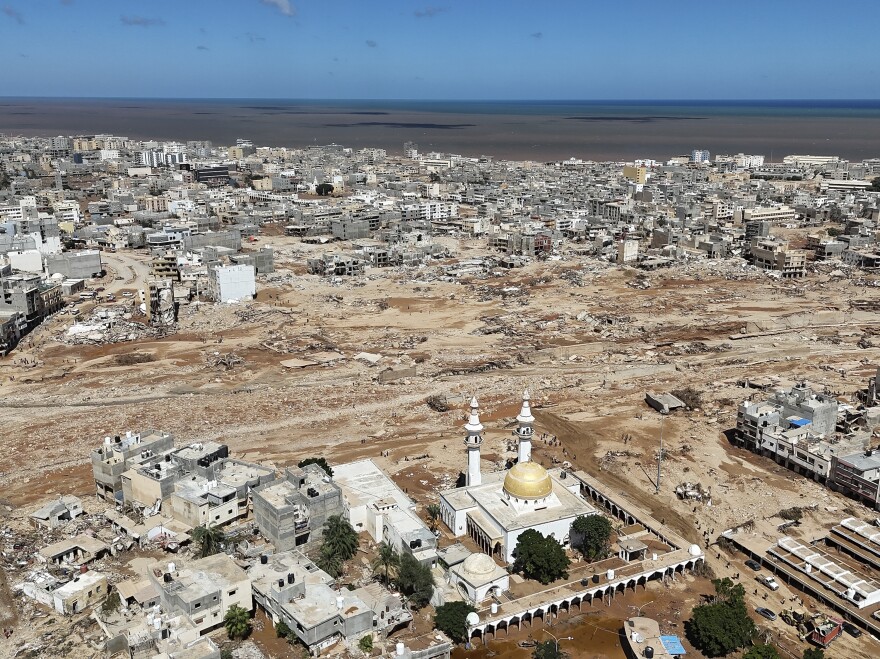Catastrophic floods in eastern Libya killed at least 5,100 people, according to local authorities. The disaster comes after a string of deadly floods around the world this month, from China to Brazil to Greece. In every case, extremely heavy rain was to blame.
The enormous loss of life on multiple continents reinforces the profound danger posed by climate-driven rain storms, and the need for better warning systems and infrastructure to protect the most vulnerable populations.
Climate change makes heavy rain more common, even in arid places where the total amount of precipitation is small. That's because a hotter atmosphere can hold more moisture. Everyday rainstorms, as well as bigger storms such as hurricanes, are increasingly dangerous as a result.
In Libya, a storm called Daniel swept in from the Mediterranean over the weekend and resulted in a jaw-dropping 16 inches of rain in just 24 hours, according to the World Meteorological Organization. That is far too much water for the ground to absorb, especially in an arid climate where the soil is dry and is less able to suck up water quickly.
The massive amount of rain caused widespread flash flooding, and overwhelmed at least one dam near the coastal city of Derna. That unleashed torrents of water powerful enough to sweep away entire neighborhoods.
While it was clear to global meteorologists that the storm was powerful and was headed for the Libyan coast, it's not clear that residents of Derna were warned about the severity of the potential flooding. Libya is governed by two rival governments, and years of war means dams and other infrastructure haven't been well-maintained.
Before it got to Libya, the storm called Daniel also devastated Greece and Turkey with enormous amounts of rain. Some parts of Greece received more than two feet of rain in a three hour period last week, according to local authorities. And in Hong Kong last week, a record-breaking 6 inches of rain fell in one day. That caused flash flooding in the dense, hilly city, carrying away cars and flooding underground rail stations.
In Brazil, flooding from a cyclone last week killed more than 20 people and left a swath of southern Brazil underwater.
Cities around the world are scrambling to upgrade their infrastructure to handle increasingly common deluges.
The disasters in the last two weeks also underscore the vulnerability to climate change of people who are not wealthy or who live in places that are at war. While extreme rain has caused floods around the world recently, the death toll is significantly higher in places where there isn't money or political will to maintain infrastructure and adequate weather warning systems.
Copyright 2023 NPR. To see more, visit https://www.npr.org.





